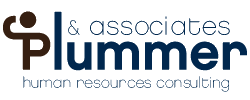Promoting Mental Health in a Pandemic – Actionable Ideas!
For the first time, many people may be experiencing mental or physical health conditions due to the continued stress of the pandemic. They may be scared and/or embarrassed to ask for help.
Here are some ideas employers can take to promote mental and physical health.
Reflect on how meetings are being scheduled. Would some new norms help?
One company allows a max of 45 minutes for a Zoom meeting. There should be 15 minutes between Zoom meetings so people can stretch/have a mini break.
No meetings between Noon and 1pm. We all need a break. Parents need to be able to get lunch ready for children in virtual school.
What about No Meeting Fridays – it’s your day to focus/get work done.
Companies are increasing the number of free visits employees can have with their EAP provider.
Bring teams together on line for fun activities – bingo, talent sharing, share a home improvement project, etc. I just enjoyed a meeting where each person wore a hat and shared the significance to them. It was great fun and helped us to get to know each other better.
Offer print and online education about anxiety disorders, substance abuse, weight management. Your health care provider will be able to offer some information to share.
The CDC tracks generalized anxiety disorder. In 2019, this was 8% of the reported cases each month. In 2020, it has jumped to 36% of the reported diagnosis.
Organize support groups for those wanting to lose weight, get more exercise.
The COVID environment is having an outsized impact on women. A McKenzie study found that women are more likely to take on extra work at home and they are at high risk of burnout. It’s even more pronounced when talking about single moms, women of color, and single moms of color. There are predictions of women leaving employers due to burn out.
An interesting 1-hour podcast on Burnout is Brene Brown with Doctors Amelia and Emily Nagoski. You could suggest that your team listen to this as they walk or do household tasks and then schedule a time to discuss what people learned from the discussion and one action they will take going forward to support their mental health and energy.
Add mindfulness moments to your meetings and to the calendar. Connect to mindfulness tools, virtual yoga sessions, guided meditation sessions. Have a 20 second moment of silence before diving into a meeting – it provides time for the mind to clear.
Publicize a free resource kit from Thriving Mind. This curriculum was developed by Stanford medicine and explains the science behind stress. There are 8 bio types. We can learn to respond to negative stress with micro habits and micro steps. The training is about recharging our brains’ battery.
You can train mental health allies in your company through a training program like Mental Health First Aid. The program teaches people how to offer initial support until appropriate professional help is received or until the crisis resolves. Like traditional first aid, it doesn’t teach people to diagnose or treat mental health or substance use conditions. The on-line training teaches people how to listen, to learn the skills of empathy, and role modeling. Skills that help any of us in our work. There is a focus on normalizing the conversation and that it’s ok to talk about feelings.

